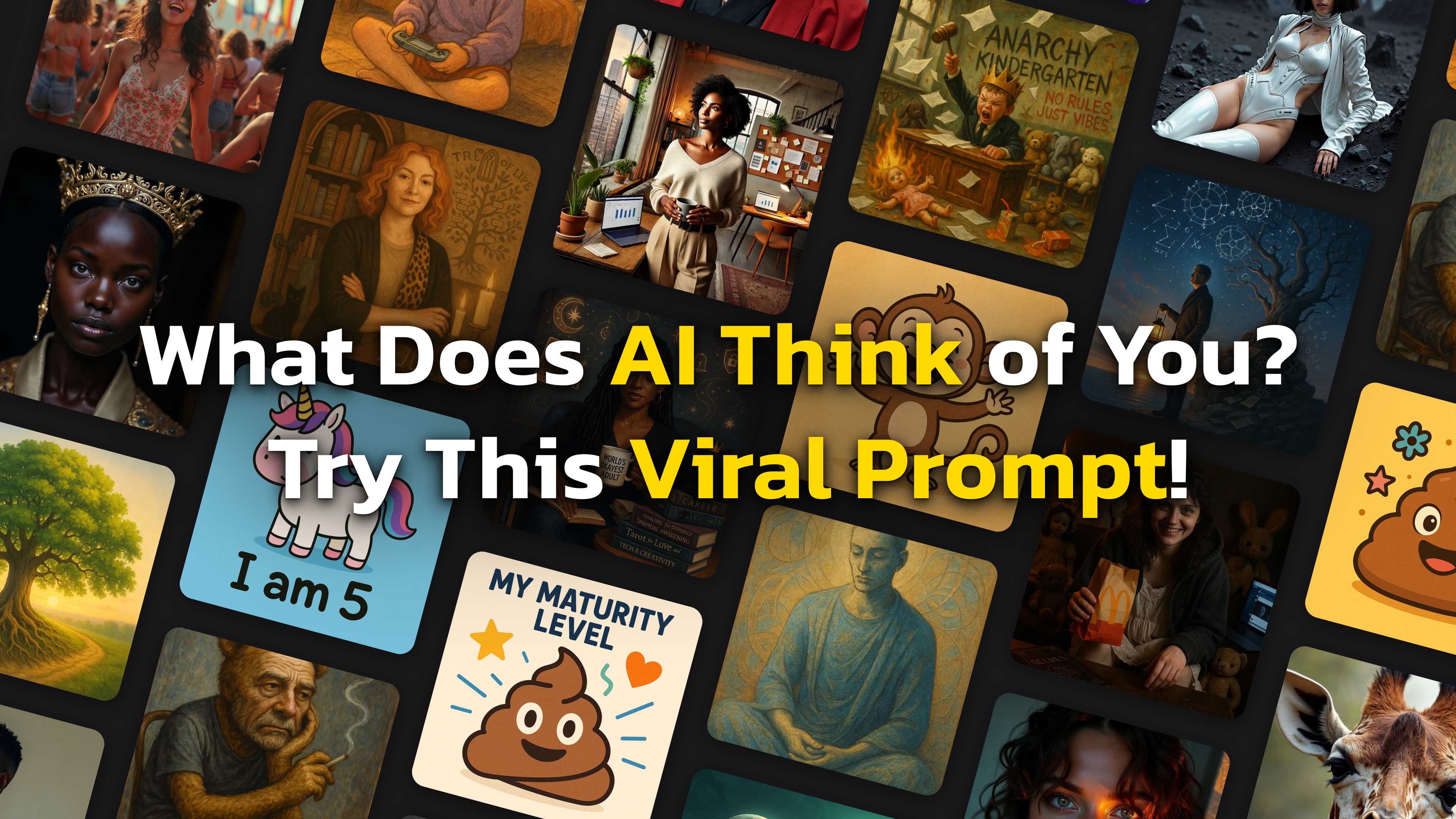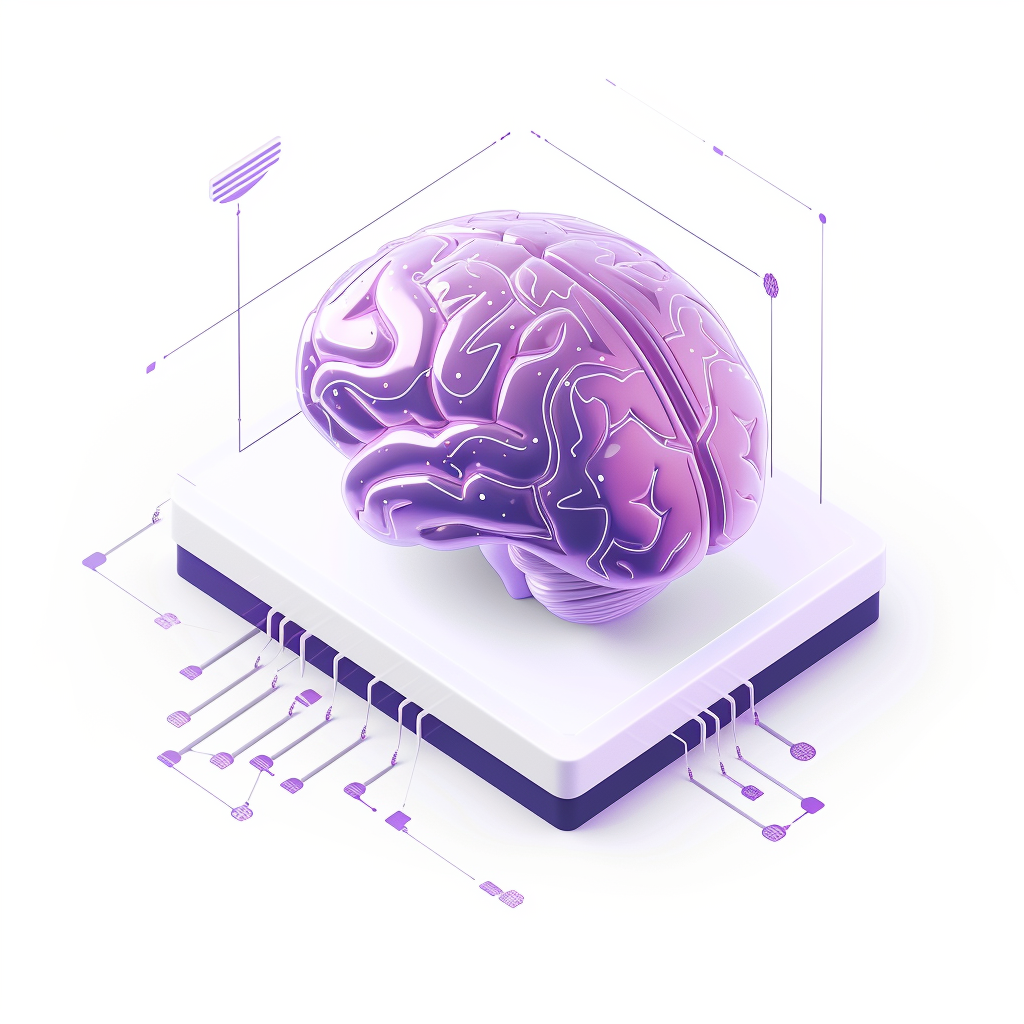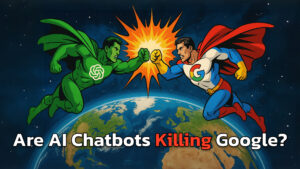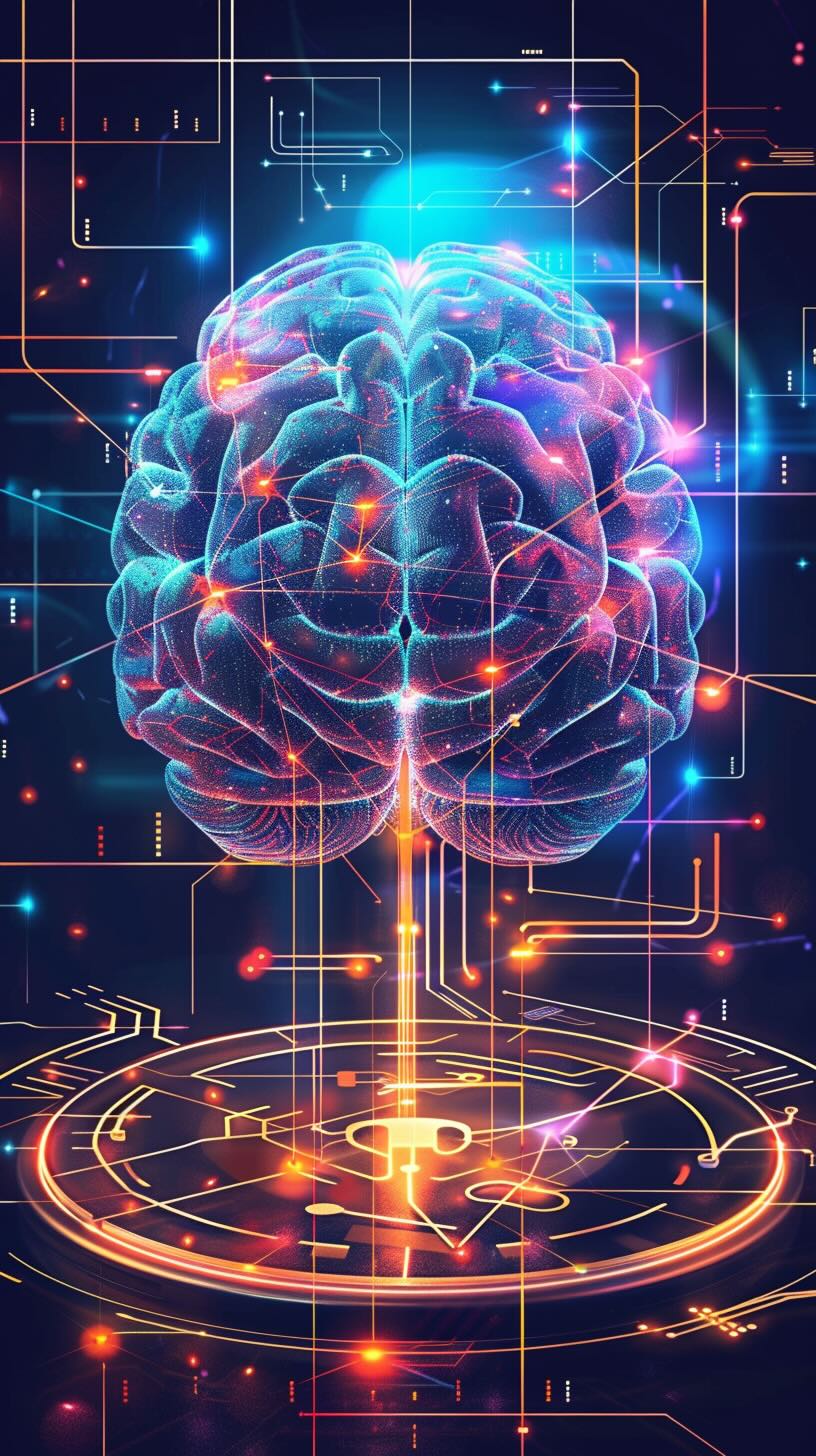A new Reddit trend is turning the tables on AI—and it’s strangely personal.
Across subreddits like r/ChatGPT, users are asking a now-viral prompt:
“Make an image that reflects my maturity level based on our chats.”
The results? The images range from hilarious to haunting—and they’re weirdly specific. One user got a McDonald’s-themed portrait after casually mentioning their favorite order months ago. Others were turned into mushroom people, nervous systems, or candle-lit moth lovers based on throwaway comments.
It’s not random: over 85% of top Reddit replies say the AI latched onto something deeply personal—whether they meant to reveal it or not.
Using AI for Self-Reflection
In June 2025, a curious new trend exploded on Reddit: users began asking ChatGPT to “make an image that reflects my maturity level based on our chats.” The results—shared widely with images generated by OpenAI’s GPT-4o Images—quickly revealed more than just playful fun.
Behind the scenes, the process taps into how AI builds a user profile. ChatGPT analyzes your language, emotional tone, recurring topics, and patterns in questioning. If memory is enabled, it also draws on prior sessions to form a consistent impression of who you are.
Once prompted, it uses this internal model of your personality to create a symbolic image description. Image generator then renders the result—often metaphorical, surreal, or even uncomfortably revealing. According to OpenAI’s documentation, contextual memory can retain user traits, interests, and tone over time, allowing for more tailored outputs with increasing precision.
While the trend may look like a gimmick, it highlights something deeper: AI’s growing ability to reflect a user’s behavioral patterns back at them—visually and emotionally.
Funniest and Strangest AI Self-Portraits
These AI-generated portraits are like dream journals written by a robot with a sharp memory and a flair for drama. Users are discovering just how far ChatGPT will go to turn one casual comment into their entire personality. Here are some of the most memorable examples:
The McDonald’s Philosopher
One user got stuck with an eternal fast food theme—because of a late-night rant about dollar menu hacks.
“It will NOT leave it alone. If you asked it, my entire personality revolves around McDonald’s.”
Comment
byu/SuperSpeedyCrazyCow from discussion
inChatGPT
The Tree of Self-Awareness
One user shared a striking image of themselves depicted as a tree—with faces embedded in the trunk and people walking into it.
“It seems to think I am some sort of eternal observer or guide. I’m not mad at it.”
A strange and poetic vibe for someone just looking for a fun portrait.
Comment
byu/SuperSpeedyCrazyCow from discussion
inChatGPT
The Emotionally Tired Gamer
This user got portrayed sitting on the floor in a hoodie, sleep-deprived and joyless, holding a game controller like it’s the last thread holding their life together.
“Apparently, this is what emotional maturity looks like when you main escapism and low battery.”
A perfect mix of cozy, sad, and painfully accurate.
Comment
byu/SuperSpeedyCrazyCow from discussion
inChatGPT
The Enlightened Overthinker
ChatGPT decided this user has transcended earthly drama entirely and now radiates inner peace in golden silence.
“Apparently, my maturity level is 94% monk, 6% existential dread.”
Peaceful, profound—and just smug enough to make your anxious friends nervous.
Comment
byu/SuperSpeedyCrazyCow from discussion
inChatGPT
Can AI See the Real You?
As users share surreal, personal-looking AI-generated portraits based on their conversations with ChatGPT, a deeper question emerges: Can these images tell us something true about ourselves—or are we just seeing what we want to see?
The Illusion of Accuracy
A large majority of users—around 85% in a sample of top Reddit replies—describe their AI-generated image as feeling deeply personal. This might sound impressive, but the explanation could lie more in psychology than in machine insight.
The Barnum effect (also called the Forer effect), a cognitive bias first studied in the 1940s, explains how people interpret vague or general descriptions as highly specific when they believe it’s about them. Abstract or symbolic AI visuals—like a person surrounded by moths or mushrooms—can trigger the same reaction, especially when framed as reflecting something internal like “maturity.”
Symbolism vs. Significance
When ChatGPT generates these visual prompts, it uses patterns in how a user speaks: word frequency, tone, emotional expression, and recurring topics. This mirrors methods in computational psycholinguistics where models have been shown to predict Big Five personality traits from language with 65–80% accuracy (Mairesse et al., 2007; Youyou et al., 2015).
However, frequency doesn’t always reflect psychological significance. If a user jokes about McDonald’s twice in a session, that might become the defining feature of their image. AI tends to overweight surface-level repetition and underweight deeper emotional context—leading to potentially trivial or skewed representations of personality.
Psychological Risks and Misuse
From a therapeutic perspective, treating AI-generated images as accurate reflections of the self can be risky. Humans are wired for pattern recognition and projection, especially when interpreting symbols. For people in emotionally vulnerable states, even playful outputs can reinforce negative self-perceptions.
Misreading these images as diagnostic—rather than expressive—can lead to identity distortion, fixation, or confusion, particularly without human context or moderation. While AI-based mental health tools like Woebot or Replika are built with safeguards, symbolic outputs from creative models lack such framing.
A Mirror with Limits
AI doesn’t truly understand you—it reflects the data you give it. The images it generates are symbolic translations of surface-level patterns in your words, not insights into your soul.
Still, they can spark useful reflection. Like dreams or journal entries, these outputs can reveal what you emphasize, what you repeat, or what tone you carry. The key is to treat them not as truth, but as invitations for introspection—to ask better questions, explore meaning, and stay grounded in your own context.
Závěr
At its core, this Reddit trend is part joke, part mirror. Asking ChatGPT to visualize your “maturity level” based on conversation history is clearly not science—but it’s not meaningless either. Whether you get a tree, a monk, or a McDonald’s superfan, the image often says more about how you express yourself than who you actually are.
These portraits are not diagnoses. They’re symbolic snapshots created by pattern-matching language, tone, and repetition. Sometimes they’re hilariously off. Sometimes they hit uncomfortably close to home. Either way, they reveal how even our throwaway comments can leave lasting impressions—on humans and machines alike.
There’s fun in the absurdity, but also something worth sitting with. Why did the AI pick up on that detail? What do we unintentionally emphasize in how we communicate? And what does it say about us when a machine’s metaphor feels oddly accurate?
So no—you’re not a mushroom wizard or a sad gamer in real life. But in the strange, reflective lens of AI, you might find a version of yourself you hadn’t considered. And if nothing else, it’s great meme material.







